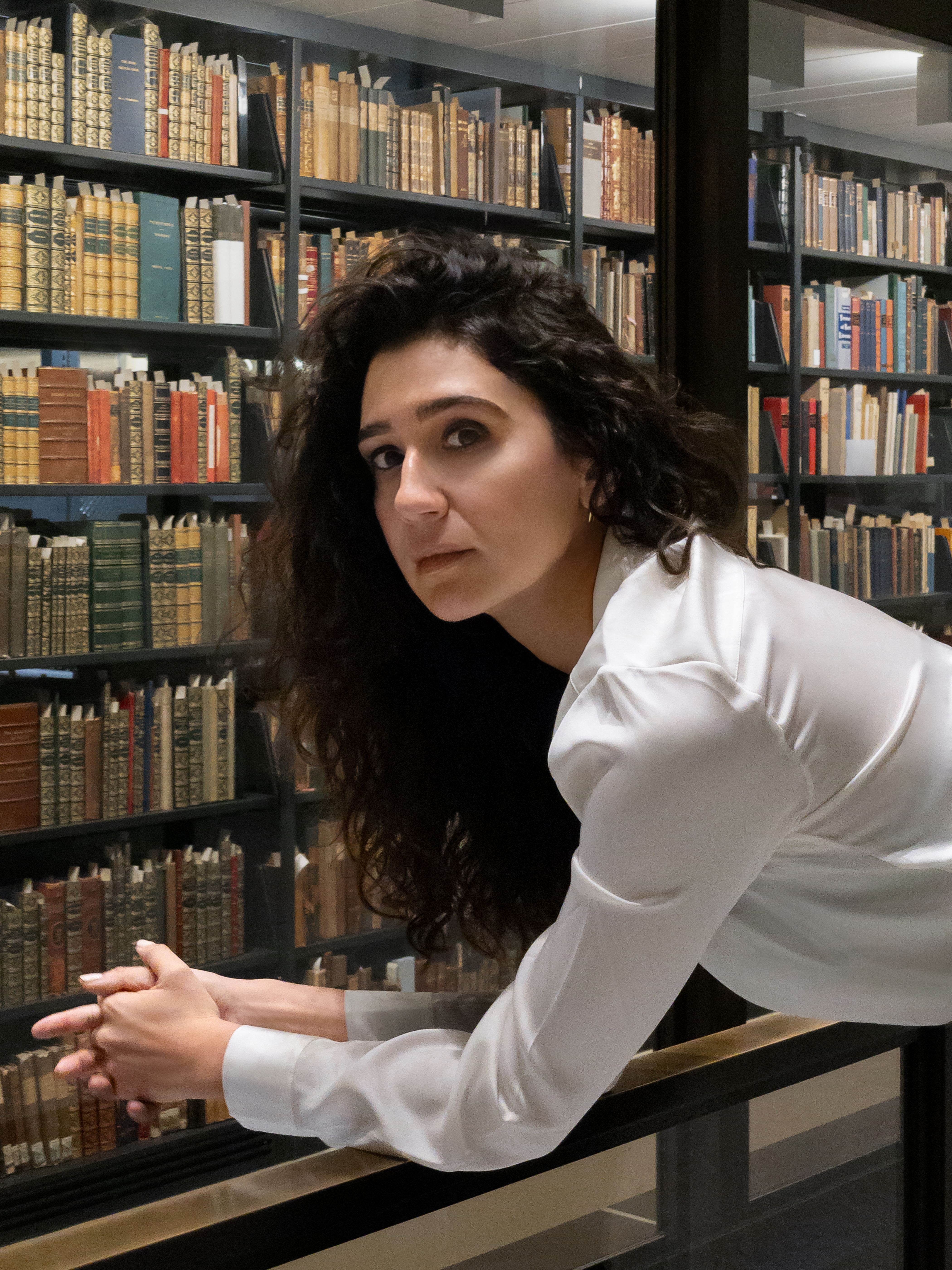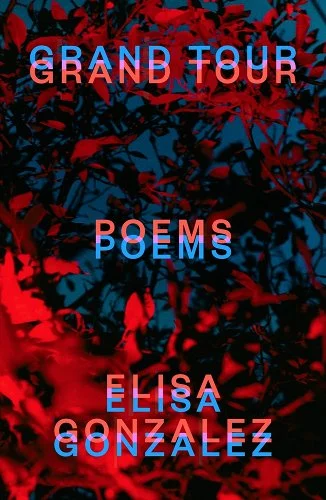Elisa Gonzalez is a poet, essayist, and fiction writer. Her work appears in The New Yorker, The Paris Review, and elsewhere. A graduate of Yale University and the New York University MFA program, she has received fellowships from the Norman Mailer Center, Bread Loaf Writers’ Conference, Rolex Foundation, and U.S. Fulbright Program. She is the recipient of a Rona Jaffe Foundation Writers’ Award and an Award in Literature from the American Academy of Arts and Letters. Her debut poetry collection, Grand Tour, was published by Farrar, Straus and Giroux, which will also bring out her novel, The Awakenings, and a nonfiction book, Strangers on Earth.

-
Grand Tour: PoemsFrom"After My Brother’s Death, I Reflect on the Iliad"
Alone in a London museum, I saw a watercolor of twin
flames, one black, one a gauzy red,
only to learn the title is Boats at Sea. It's like how
sometimes I forget you're gone.
But it's not like that, is it? Not at all. When in this world
similes carry us nowhere.
And now I see again the boy pelting through those galleries
a boy not you, a flash of red, red, chasing, or being chased—
Or did I invent him? Mischief companion. Brother.
Listen to me
plead for your life though even in the dream I know you're
already dead.
How do I insure my desire for grief is never satisfied? Was
Priam's ever?
I tell my friend, I want the page itself to burn.
 Grand Tour : Poems
Grand Tour : Poems- Print Books
- Bookshop
-
Grand Tour: PoemsFrom"The Night Before I Leave Home"
He drives too fast, as always, braking hard when he finally
arrives
at the meadow my car slid into before it slid
into an oak
where a whitetail hangs, strung
by its hind legs to drain the slit throat.
It takes more time than I expected
for death to be over,
I tell my brother. And he, a hunter, says, Yeah,
in the tone that means, Of course.
And years later I have the same voice
when he calls at 4:17 a.m. and I knock the phone off the bed,
answering almost upside-down, stretched toward him.
His pain then, I lived for it, I realize now.
Not for its existence, but to quiet with my words.
I had left so long ago. I had left.
 Grand Tour : Poems
Grand Tour : Poems- Print Books
- Bookshop
-
Grand Tour: PoemsFrom"Sunset"
A trampled carnation, or the red jacket sleeve
blurred on that girl quickening
after the ball
draws my mind
to the ship that I am told
is coming, preparing to anchor.
I am turned toward the sea.
It pauses at the bay’s red mouth
When everyone seems so happy, why does it delay?
 Grand Tour : Poems
Grand Tour : Poems- Print Books
- Bookshop
"This vivid, searching début collection traverses and troubles borders between nations, languages, lovers, the past and the present, the living and the dead; combining reflections on art and history with astute observations of everyday life, Gonzalez contends with the world’s capacity for profound suffering and for near-unbearable beauty in equal measure." —The New Yorker [on Grand Tour]
"Grand Tour is a diary of vigilance, a record of standing at arm’s length even from life’s most intimate experiences in order to appreciate their strangeness and, later, to capture that strangeness in words." —Anahid Nersessian, The New York Review of Books
"There is in Gonzalez's nature something volcanic, a sense of fire originating at a very great depth, so when it breaks the surface it breaks blazing. Here are wild elegies to lost selves; here, too, poems of eerie delicacy and strangeness, radiating a kind of desperate sadness. But I love best the long incautious poems: here one feels most urgently her extraordinary force, her dignity, her savage hunger, her sweetness." —Louise Glück, winner of the Nobel Prize in Literature [on Grand Tour]
Elisa Gonzalez’s aptly titled debut, Grand Tour, reflects the poet's attachment to the world, its resplendence and, sometimes, its horror. Gonzalez gives us an elegy to a lost brother, rapt dissections of languages, and sensuous odes of and to the body. Every conceivable genre and gesture finds its way into the book, sculpted into song. These poems swerve; honoring the great classical poets she admires, Gonzalez strikes her own path.